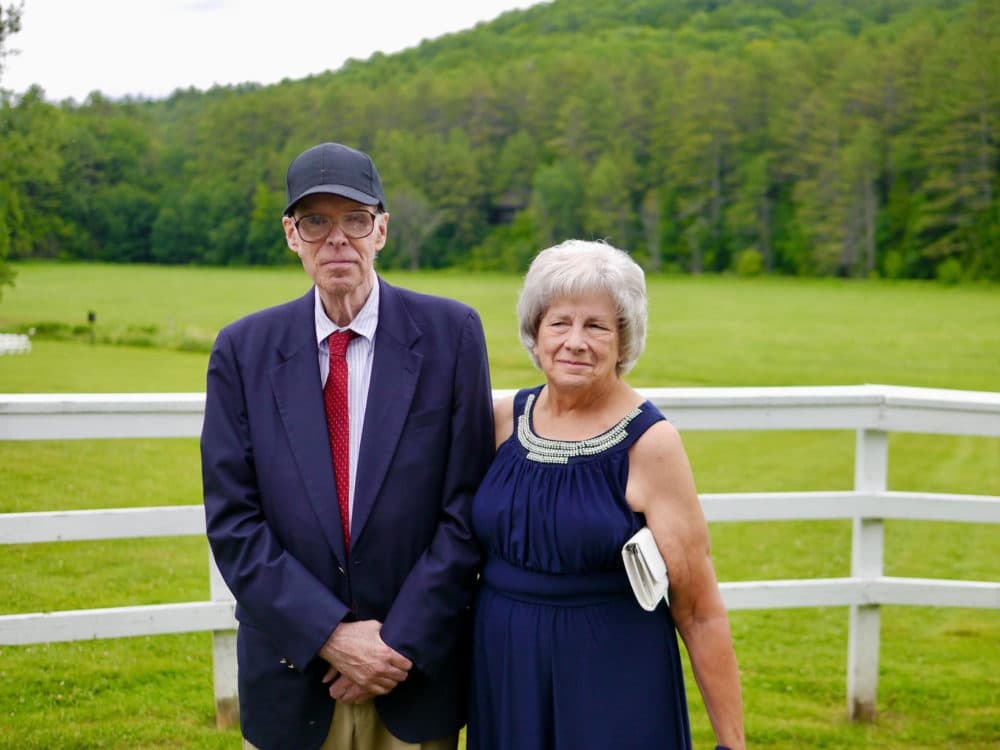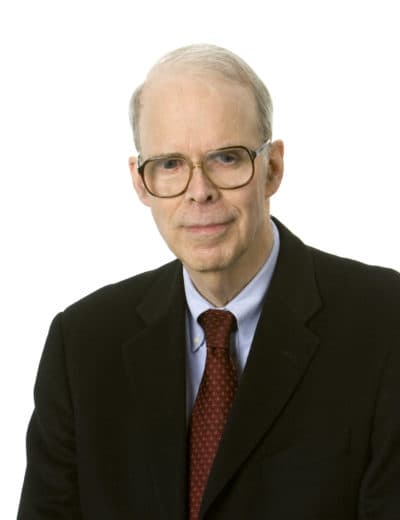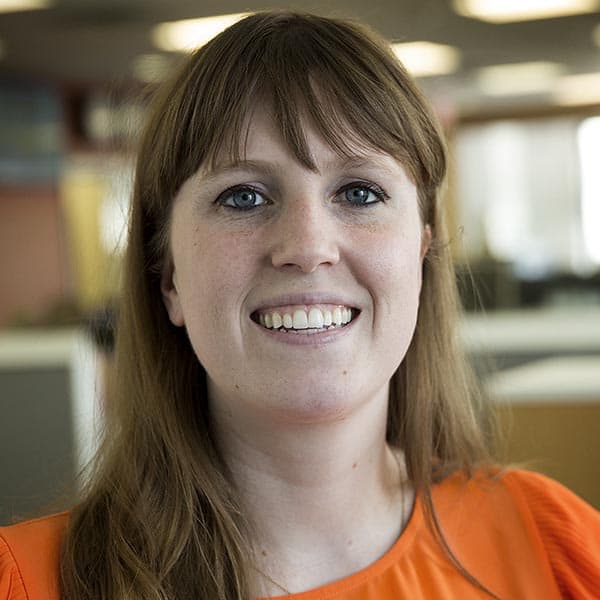Advertisement
Coronavirus Coverage
Over 1,000 People Have Died From COVID-19 In Mass. We Hear One Of Their Stories

Over 1,000 people in Massachusetts have died because of the coronavirus. Nationwide, over 26,000 people have died of COVID-19 — a number that continues to grow.
One of those people is Peter Coogan, who died last week of COVID-19 at the Briarwood Nursing Home in Needham. He was 76 years old.

Born in Newton, Coogan was a lawyer, educated at Harvard, and had practiced with the firm Foley Hoag in Boston. He lived in Newton Centre with his wife, Deborah Coogan. He and Deborah had been married for 45 years, and had two children.
"He enlarged my world," Deborah Coogan said of her husband on Radio Boston. "He introduced me to opera and classical music... There were just so many things that I never experienced until I was with him."
Deborah Coogan said she does not place any blame on the nursing home for his death. He had been living at the facility for 14 months and contracted the virus there. Coogan had multiple physical ailments, including a severe case of muscular dystrophy.
"There's no foolproof way of screening of the workers," Coogan said. "I knew it was inevitable, but I didn't think it would happen."
Coogan had visited her husband nearly every day while he lived there, feeding him meals and reading books to him. But, a month before his death, Briarwood Nursing Home had contacted Debbie to tell her they were no longer allowing visitors.
"I was just horrified. I was upset. I was weeping. I couldn't imagine being so separated from my husband," Coogan said. "I called Peter three times, four times a day to talk with him. [But] it wasn't the same as my being there."
Advertisement
On the day her husband died, Coogan said she was able to call him on FaceTime.
"Both our children and I were able to tell him how much we loved him and how important he was to us and how we cared so much about him," Coogan said.
She also relayed one piece of good news to her husband: the birth of their grandchild.
"My last FaceTime with my husband, I was able to tell him ... that the grandchild had been named in honor of him," Coogan said. "That meant so much to me."
Now, she's left to face her grief — and this public health crisis — alone.
"I want to give a hug to my children. I want to give a hug to my grandchildren. It just feels so sad not to be able to do that," Coogan said.
As the death toll mounts, she is not the only one.
Sairey Luterman, a grief counselor based in Lexington, and Rev. John Kearns, a chaplain at Brigham and Women's Hospital, spoke with us on how to talk about the losses we're feeling right now and what we can do reach out to others.
On how the coronavirus pandemic has changed how people die:
Rev. Kearns: Having an elderly person taken care of and being safe and protected in old age and then dying comfortably, surrounded by loved ones is such ... an expected part of our process of escorting the elderly, and our own loved ones, to the next life, including the funeral and the services afterwards. When those kind of basic, fundamental things are deprived of someone, it poses such an incredible loss.
On adapting new ways to say goodbye:
Rev. Kearns: Here in the hospital setting, something we are doing is being able to bring an iPad in to the patient so they can connect with their loved one, or at least the loved one can see them and speak to them before they go ... Saying goodbye, asking and giving forgiveness ... and expressing your love for them is so critical. We are discovering here, as I think our whole society has, new ways of doing that.
On how to process other types of losses during this pandemic:
Luterman: People are dying lots of different ways right now and people are grieving all kinds of loss in addition to COVID-19 loss. [Sometimes those losses] are almost more lonely [but they are] no less profound and sad. You're also at the mercy of the same kind of limits of not being able to hug people, not being able to be together, not being able to meaningfully commune beyond sort of FaceTime and phone calling.
On how to help the people we know who may be in mourning:
Luterman: Reach out and make yourself available in whatever format is comfortable for you and respects the laws of social distancing. If that's a phone call, if that's a FaceTime, if that's sending a little something in snail mail... The point is to connect. And if that person doesn't want to connect, it's to offer the connection so that they know when they do want to grieve, you're there. That's it.
This article was originally published on April 15, 2020.
This segment aired on April 15, 2020.

